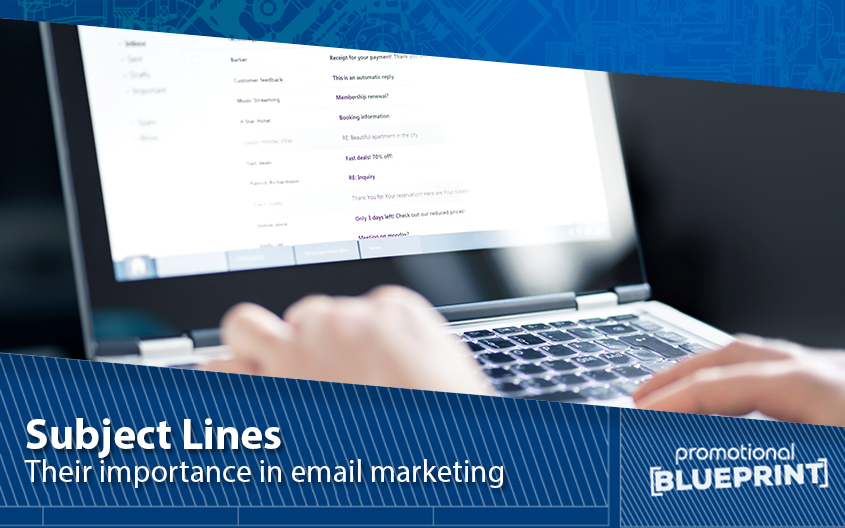
Even though email marketing has been around for a long time, it’s still one of the most effective ways to grow your business. Through email marketing, you can share news about your company, build a relationship with customers, and advertise your products and services. In other words, email marketing provides unlimited advertising opportunities.
However, in order to make the most out of email marketing, you need to understand the power of subject lines. But first, let’s see why email marketing is still so relevant and effective in our day and age.
Why Should You Use Email Marketing?
It goes without saying that most people check their emails daily. According to research, the average person checks their email about 15 times per day. That’s 15 opportunities for your brand to stand out and attract potential new customers.
But to better put into perspective the effectiveness of email marketing, we can simply take a look at its return on investment. In 2020, there was an average of £35.41 ROI for every £1 spent. In contrast, billboard ads’ average return on investment was less than £4.40 per £1 spent. That’s a huge difference!
So What’s the Catch?
Although email marketing is extremely effective and can help any business, it needs to be done right. For example, you need to avoid sending emails that contain irrelevant information. Otherwise, your recipients will ignore them or unsubscribe from the email list altogether.
Your emails need to be useful to the customers who receive them. That way, they will be inclined to click on the link to your website and check out your products and services. You also want your content to elicit action from your recipient by offering unique discounts.
But another key aspect of email marketing that many companies don’t pay enough attention to is the subject line.
Why Does the Subject Line Matter?
While some might argue that subject lines are only a small part of your message, they are vital. Regardless of what they say, people do judge emails based on their subject lines. As a matter of fact, research shows that almost 70% of email recipients report emails as spam based on subject lines alone. That’s why it’s essential to create subject lines that are compelling enough to get people to check your email.
What Makes a Good Subject Line?
So, do you want your email content to be opened, read, and clicked? If yes, then you need to optimise your subject line and use it to boost your email engagement. Here are some tried-and-true tips that you can use to improve your subject line with ease.
Get the Length Right
First, you need to determine the optimal length for your customer base. Generally speaking, the sweet spot is anywhere between six and ten words in length. Using fewer words won’t necessarily have a negative impact on your results. However, too many words, usually over 20, will drastically reduce the effectiveness of your emails.
Exclude the Word Newsletter
One thing you should definitely avoid is the word newsletter. Data suggests that email open rates go down by about 19% when the word appears in the subject line. That’s because people see traditional newsletters as boring and outdated, no matter the content inside. So, even if your email is indeed a newsletter, don’t mention that in the subject line.
Use A/B Testing
A great way to ensure that your subject line is effective is to conduct A/B testing. Through it, you can test anything from word length and word choice to tone and any other factor. Once you’ve seen what kind of subject line your audience responds to most, you should use it moving forward. With the help of A/B testing, any company can figure out which is the most engaging and interesting.
Emojis Can Be Effective
Ten years ago, using emojis in your subject line would have seemed unprofessional and controversial. But those days are long gone. Now, subject lines that feature emojis have high open rates, so you should take advantage of that.
However, you need to be careful how you use them. Too many emojis will make people think that your email is spam. And depending on the tone of the message and context, emojis might be inappropriate. Additionally, you need to test your emojis across multiple email platforms, as they might render differently across each. But as long as you use them with caution, emojis can be a great inclusion that will improve the success rates of your emails.
Avoid Spammy Words
You don’t want to ruin your (sender’s) reputation, which means that your emails should stay out of the spam folder. To do that, your subject line shouldn’t contain special characters, and it also shouldn’t be written in all caps. Besides that, there are a few spam words that you need to avoid:
- Billion
- Cash bonus
- Cheap
- Free
- Extra income
- Apply now
- Auto email removal
- Earn money
- Eliminate depth
- Fast cash
Don’t Forget About FOMO
You can use FOMO, or Fear of Missing Out, to get recipients interested in opening your emails. By delivering a sense of urgency with your subject line, your subscribers will want to check out what’s in store for them. Terms like limited time, expiring, and last chance will compel people to at least open your email.
However, if you plan on using FOMO, you need to deliver on what you promised. An urgent email that features no real urgency will ruin your reputation more than anything. Relying on fake FOMO will backfire and leave your audience annoyed with your email and brand as a whole. And though your opening rate might improve, the click-through rate will suffer immensely.
To Sum Up
All in all, when your emails are not getting opened, their content is not seen. That’s why you need to put a lot of time and effort into the subject lines. By using our tips, you too can come up with a variety of creative and interesting subject lines that will compel people to click on them. You already have unique content to share, so why not prove it in your subject line?
You may also like:
Internet Marketing
If you need even more info about email marketing or any other related subject, we are here for you. Give us a call at 0800 0148 970 or simply email us today.






